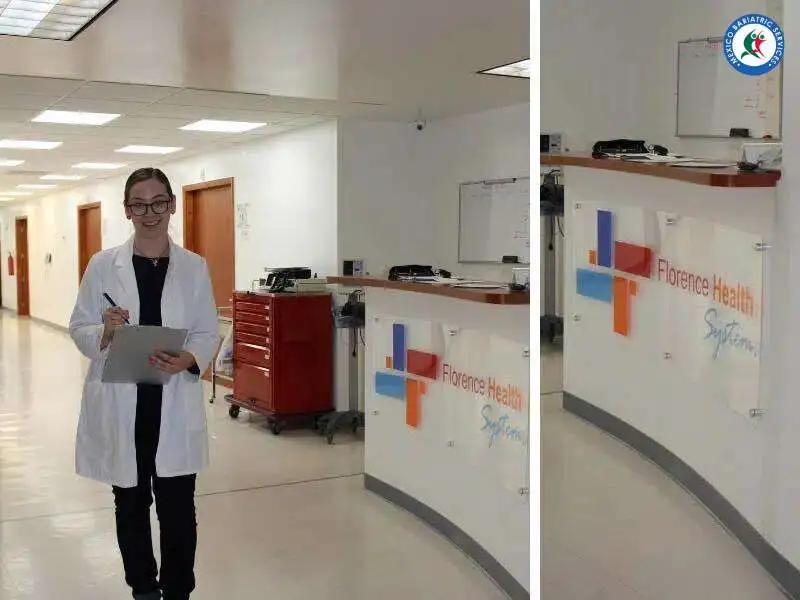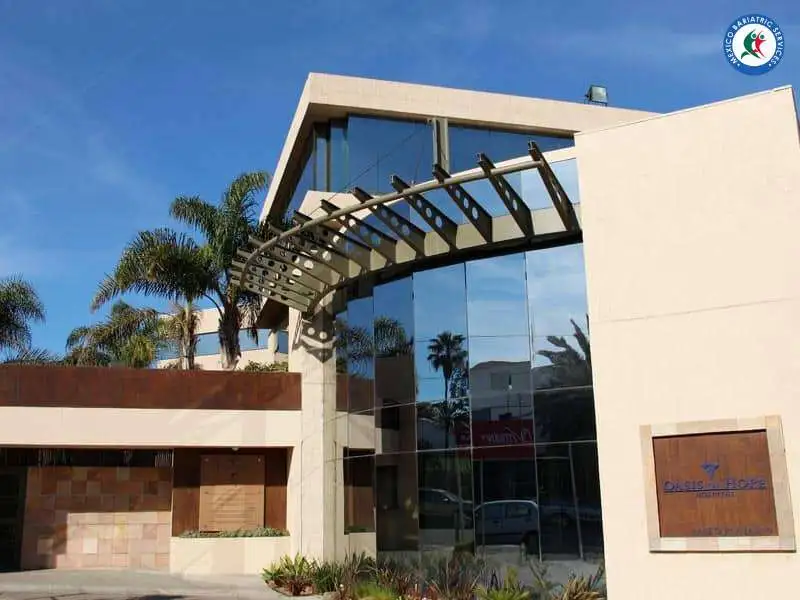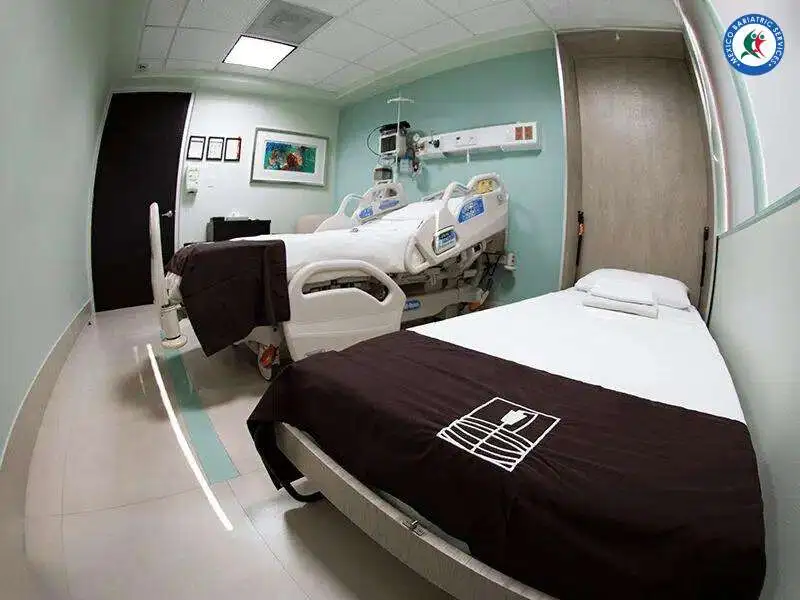Top 25 Questions on Bariatric Surgery in Tijuana
Medically Reviewed by Katelyn J. Mock, US-Registered Dietician (R.D.)
1. What are the risks associated with gastric sleeve and gastric bypass?
Gastric Sleeve – Though the complication rate for this procedure is meager, the significant risks include internal bleeding, leakage, stricture, nutritional deficiencies, acid reflux, and blood clots. There are ways of preventing such complications. For example, cutting out spicy food, alcohol and smoking, and hydration.
Gastric Bypass – The most common complaint of a gastric bypass patient is abdominal pain, and that usually goes away in a few days. Other complications include ulcers, gallstones, and surgical site infections.
2. How safe is bariatric surgery in Mexico?
Our team of qualified and experienced bariatric surgeons makes your bariatric surgery in Mexico very safe. One can head over to the many client testimonials on weight loss surgery in Mexico and know how their experience was.
3. Does insurance cover bariatric surgery?
Generally, bariatric surgery is covered by insurance if it can be shown that it isn’t an elective procedure. However, the exact coverage depends on the insurance policy. Medicaid typically covers weight loss surgery. Some American states even require insurance companies to include bariatric procedures in cases where the patient meets the NIH qualifications.[1]“Potential Candidates for Bariatric Surgery” NIH, National Institute of Diabetes and Digestive and Kidney Diseases
View in Article
4. How much does a gastric sleeve cost without insurance in the US?
On average, sleeve gastrectomy or gastric sleeve surgery costs $14,900 in the US. This is the primary reason why patients are exploring cheaper options in Mexico. The same procedure in Mexico starts at $3,995.
5. Is bariatric surgery painful?
Those who undergo a laparoscopic procedure have a shorter hospital stay. On average, patients spend 2-5 days in the hospital. Mostly, patients complain of gas pain and pain at the incision sites. This pain lasts 1-2 days and is manageable.
It is essential to tell the doctors/staff that you are experiencing pain. There is a very low risk of getting addicted to pain control medication when it is administered for a specific medical purpose after surgery.[2]University of California San Francisco, “Recovering from Bariatric Surgery
View in Article
6. Who is an ideal candidate for bariatric surgery?
You qualify for bariatric surgery if –
- Body mass index (BMI) is equal to or above 40,
- BMI that lies between 31 and 40, coupled with a co-morbidity of obesity, such as Type 2 diabetes, cardiac problems, high cholesterol, and sleep apnea,
- Alternatives like exercise and a healthy diet fail to work.
7. Can gastric bypass be reversed?
Generally, a bariatric procedure is reversed when the patient starts experiencing severe complications (revision Surgery)/ Weight regain. Yes, gastric bypass surgery can be reversed. Some medical conditions that require the reversal of gastric bypass are short gut syndrome, renal failure, marginal ulceration, and malnutrition.[3]Chousleb E, Patel S, Szomstein S et al. “Reasons and Operative Outcomes after Reversal of Gastric Bypass and Jejunoileal Bypass” Obesity Surgery (2012); 22(10): 1611-6 doi
View in Article
8. What is the mortality rate of bariatric surgery?
In the first year, the mortality rate is about 1%. The fatality rate increases to almost 6% on a 5-year follow-up. In the first 30 days following the weight loss procedure, less than 1% of the bariatric patients died. [4]JAMA Surgery, “Death Rates and Causes of Death After Bariatric Surgery for Pennsylvania Residents 1995-2004” Arch Surg. 2007;142(10):923-928.
View in Article
9. Is it safe to get a gastric sleeve in Tijuana?
It is safe to get a gastric sleeve or any other bariatric procedure in Mexico, but it solely depends on your choice of a bariatric surgeon. Check for credentials and reviews. If possible, talk to their old patients to be sure.
10. Are there any good beaches in Tijuana, Mexico?
Yes, there are. Playas de Tijuana and Border Field State Park. There is a beach about 2 blocks from Oasis of Hope as well. Apart from the beaches. The town has many other tourist attractions like the Avenida Revolucion and El Popo market.
11. What information is available about the different bariatric hospitals in Mexico?
We offer services in Oasis of Hope and Florence Hospital. We also offer bariatric surgery at an International Center of Excellence (ICE).
Florence Hospital

This hospital was established in 1986. It takes about 40 minutes to reach Florence Hospital from San Diego, USA. Since Florence is quite close to the US-Mexico border, Americans tend to be outpatients or stay for 1-2 days.
Oasis of Hope

Established in 1963, Oasis of Hope is popular with both local and international patients. It is located about a 30-minute drive from the San Diego airport. Oasis of Hope has top-notch equipment, an on-site lab, a cafeteria, and a hotel on the top floor. To make the patient’s stay as comfortable as possible, there is an ample amount of parking space, a Chapel with Sunday services, and a high-quality diagnostic imaging facility.
Twin Towers Hospital

Twin Towers is an internationally recognized hospital. The center has successfully treated more than 3,000 bariatric patients from the United States, Canada, Europe, and Mexico. With state-of-the-art facilities like nutrition planning, an on-site intensive care unit, and a wonderful spa-like environment, the center offers its patients the best of medical facilities and comfort.
12. Why do most people fly to San Diego and not directly to Tijuana?
For international patients, flying into San Diego and crossing the border is a much-preferred option because of the following reasons-
- It is more expensive to fly directly.
- There aren’t daily flights.
- Flying into the town necessarily requires a passport.
13. When in Mexico, can one shop using debit cards/credit cards?
American debit cards can be used in Mexico. However, it is better to withdraw money from one’s bank branch’s ATM and use that instead. Another suggestion is to inform the bank beforehand so that they don’t block the card transaction under the suspicion of fraud.
14. What are some good hotels to stay at in Tijuana?

The Grand Care Hotel in Tijuana is a good one. Grand Care is an entire floor in the Grand Hotel exclusively for medical tourism patients. It takes about 40 minutes to drive to the hotel from San Diego. Grand Hotel offers complimentary shuttle service to and from the hospital.
15. Where can I find some patient reviews for bariatric surgery in Mexico?
We have a section on video testimonials on bariatric surgery experience where one can check out reviews. We also have a section on pictures before and after weight loss surgery, where one can see results.
16. Does one need to carry a power converter?
Speaking about the hotel facilities, one does not need to carry a power converter to Tijuana. Adapters are also easily available in most Mexican electronics stores.
17. Can one get the lap band surgery in Tijuana?
It is a restrictive weight loss procedure that used to be very popular. Lap band surgery is performed here. However, we suggest that one weighs all their options as the success rates of gastric sleeve and gastric bypass are higher and safer to perform.
18. What are some of the dietary changes after a bariatric procedure in Mexico?
Generally speaking, a weight loss procedure is accompanied by complete lifestyle changes. The most significant change comes in one’s dietary choices. Foods like bread and sweets and drinks like alcohol and soda become a rare occurrence. One eats less amount of food while paying special attention to protein consumption.
19. Is it okay to buy a prescription from Tijuana?
Yes! Some medicines are cheaper in Mexico, in comparison to the United States. However, it is important to declare such prescription medicines while crossing the US-Mexico border to avoid any problems.
20. Does one get both online and offline support while in the bariatric program?
We offer both online and offline support. We have support groups on Facebook where our clients, both old and new, talk about their experiences. The platform also has expert nutritionists and our bariatric surgeons on it. This has been done to provide support both before and after the surgery. Our team of medical professionals is always available on call to answer any query.
21. Are there any travel tips for Tijuana?
- It would always be helpful to learn some basic Spanish beforehand to communicate with taxi drivers.
- Uber cabs are a pocket-friendly way to zip through the city
- Try getting a cellphone plan that does not have roaming charges.
- Avenida Revolucion is the downtown tourism center of TJ which is also home to Hotel Caesar where the famous Caesar salad was invented.
22. Which border needs to be crossed to enter Tijuana?
To enter the town, one crosses the San Ysidro border. It is open 24 hours. People often drive to Tijuana for bariatric surgery. Another way is to drive to the San Ysidro border and cross the border on foot after parking the vehicle at the border parking.
23. What documents are required to enter Mexico?
Passport (Proof of Citizenship)/Valid Photo ID and enhanced driver’s license are checked while crossing the border.
24. What is the tipping etiquette in Mexico?
When in Mexico, it is recommended to carry small bills with you for tipping purposes. Tipping in Mexico can be anywhere from $2 to $20.
25. Is Tijuana a safe city?
Recently, the crime rate in Tijuana has gone down. It is important to exercise common sense at all times and avoid red light areas and going out at night. The eastern part of the town has a higher crime rate, so it is advisable to avoid that area. While going for weight loss surgery, the patient’s stay is arranged at a hotel near the hospital with the help of our team. We make extra efforts to ensure a safe stay.
To get a FREE price estimate for your desired bariatric surgery in Mexico, please fill out the quote form.
References
- “Potential Candidates for Bariatric Surgery” NIH, National Institute of Diabetes and Digestive and Kidney Diseases
- University of California San Francisco, “Recovering from Bariatric Surgery“
- Chousleb E, Patel S, Szomstein S et al. “Reasons and Operative Outcomes after Reversal of Gastric Bypass and Jejunoileal Bypass” Obesity Surgery (2012); 22(10): 1611-6 doi
- JAMA Surgery, “Death Rates and Causes of Death After Bariatric Surgery for Pennsylvania Residents 1995-2004”

